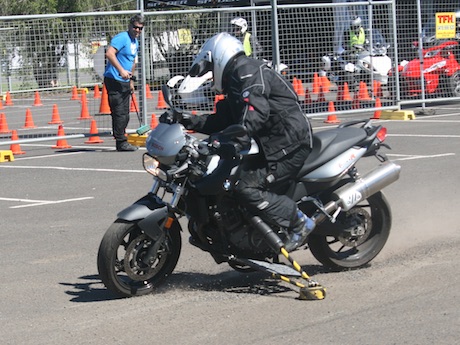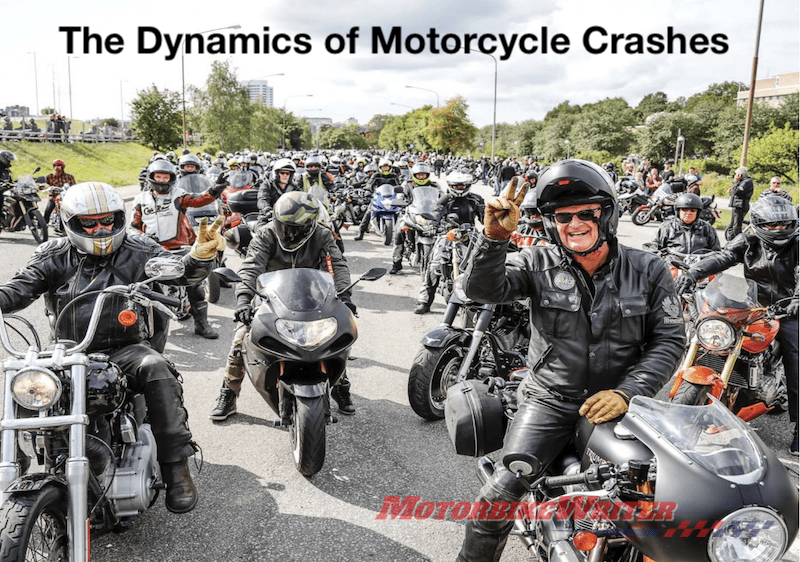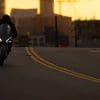Despite its much-lauded safety benefits, ABS may not be your saviour in a motorcycle crash because many riders don’t have time to even use their brakes before crashing.
That is one of the startling findings of a real-world global report called The Dynamics Of Motorcycle Crashes : A Global Survey of 1578 Motorcyclists.
Written by motorcycle-riding road safety researchers, it collected feedback from 1578 riders in 30 countries, with 126 from Australia, who had all crashed in the past 10 years.
ABS a saviour?
The study found that more than a third of the riders surveyed did not use their brakes, “whether they just did not have time or were unable to because of the circumstances”.
“How this can be addressed is relevant to the fact that in this study a third of the motorcycles were equipped with Advanced Braking Systems while 12% had traction control,” the study found.
The study questions the value of such technology in a crash scenario, considering that the perception/reaction time of the rider/driver is between 0.75 and 1.5 seconds.
“The assumption that technology will save the day may miss the obvious fact that what matters in an emergency situation, is the rider him/herself and his/her ability to control the technology.”
The study does not dispute that ABS could be a saviour when used, only that brakes are not used in many situations.
“ABS can and does make a difference,” says one of the authors, UK Motorcycle Research Analyst Elaine Hardy.
However, it seems training on the correct use of brakes, particularly with ABS, may be a contributing factor.
Interestingly, of the 288 riders who indicated that they went over the top of the handlebars (topside) after crashing, 37% (or 107) of these riders had ABS fitted to their bikes. However, 40% didn’t use them before the crash.
This research expands on a pilot 2016/17 study based on a survey of motorcyclists whose motorcycles were fitted with ABS.
Again, this research involved analysis of feedback from riders involved in crashes, rather than academia simply sifting through statistics.

ABS criticism
Critics of ABS claim it gives riders a false sense of security that the technology will be their saviour in a crash.
Others say they can brake over shorter distances without ABS, especially slippery surfaces such as gravel and wet roads.
Many modern motorcycles with ABS have a feature to disable ABS.
In 2016, university safety researcher Ross Blackman criticised a VicRoads brochure that stated: “A motorcycle with ABS enhances your riding skills and techniques by preventing the wheels from locking, skidding and sliding under.”
However, no technology makes you a better rider. It only helps compensate for poor skills or in emergencies.
Even then it has no effect if you don’t use your brakes or know how to use it properly.
ABS mandatory
From November 2019, all new motorcycle models sold in Australia over 125cc must have ABS, while bikes with lower engine capacities must have either combined brakes systems (CBS) or ABS.
All previous generation motorcycles sold in Australia must have ABS by 2021. Enduro and trials bikes are exempt.
The Federal Government declared that ABS can reduce motorcycle-related road trauma by more than 30%.
However, that referred to very early estimates of ABS effectiveness in cars more than 10 years ago.
In 2009, an American National Highway Traffic Safety Administration (NHTSA) found that ABS in cars significantly reduced injury crashes but had “close to zero overall effect on fatal crashes”.




